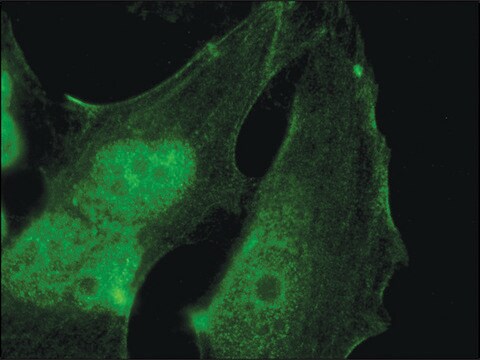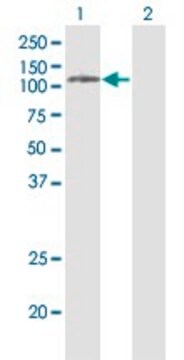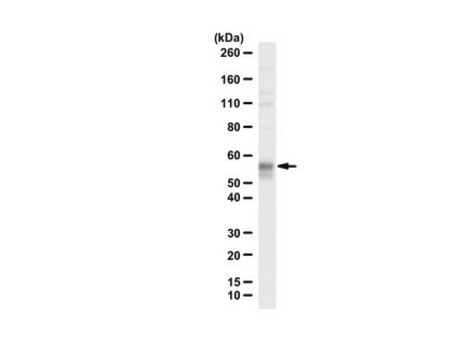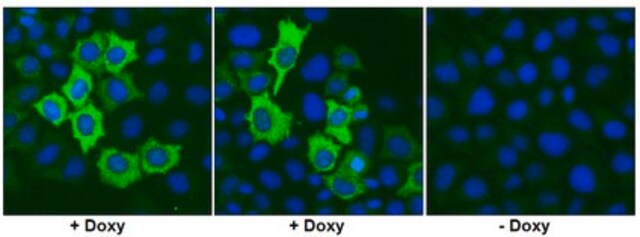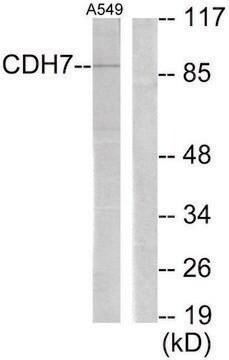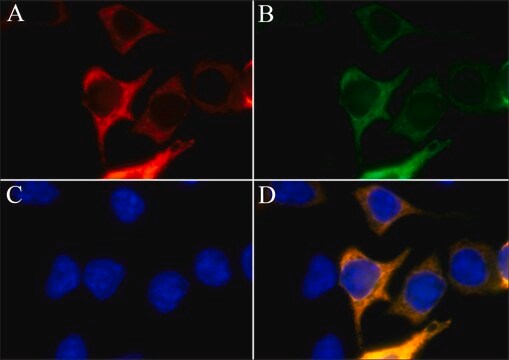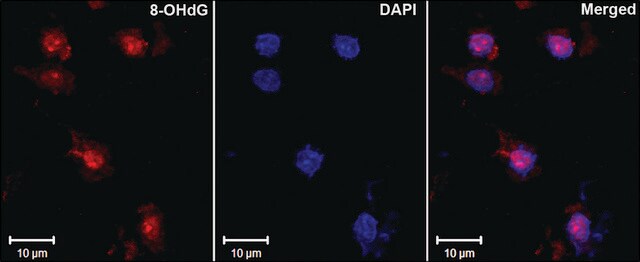MABC632
Anti-MAP3K5 Antibody, clone 2E4
ascites fluid, clone 2E4, from mouse
Synonyme(s) :
Mitogen-activated protein kinase kinase kinase 5, Apoptosis signal-regulating kinase 1, ASK-1, MAPK/ERK kinase kinase 5, MEK kinase 5, MEKK 5
About This Item
FACS
ICC
IHC
WB
flow cytometry: suitable
immunocytochemistry: suitable
immunohistochemistry: suitable
western blot: suitable
Produits recommandés
Source biologique
mouse
Niveau de qualité
Forme d'anticorps
ascites fluid
Type de produit anticorps
primary antibodies
Clone
2E4, monoclonal
Espèces réactives
human
Technique(s)
ELISA: suitable
flow cytometry: suitable
immunocytochemistry: suitable
immunohistochemistry: suitable
western blot: suitable
Isotype
IgG1
Numéro d'accès NCBI
Numéro d'accès UniProt
Conditions d'expédition
wet ice
Modification post-traductionnelle de la cible
unmodified
Informations sur le gène
human ... MAP3K5(4217)
Catégories apparentées
Description générale
Immunogène
Application
Immunocytochemistry Analysis: A 1:200-1,000 dilution from a representative lot detected MAP3K5 in HeLa cells.
Flow Cytometry Analysis: A 1:200-400 dilution from a representative lot detected MAP3K5 in HeLa cells.
ELISA: A representative lot detected MAP3K5 in ELISA (Direct).
Optimal working dilutions must be determined by end user
Apoptosis & Cancer
Apoptosis - Additional
Qualité
Western Blotting Analysis: A 1:1,000 dilution of this antibody detected MAP3K5 in 10 µg of HepG2 cell lysate.
Description de la cible
Forme physique
Stockage et stabilité
Handling Recommendations: Upon receipt and prior to removing the cap, centrifuge the vial and gently mix the solution. Aliquot into microcentrifuge tubes and store at -20°C. Avoid repeated freeze/thaw cycles, which may damage IgG and affect product performance.
Remarque sur l'analyse
HepG2 cell lysate
Clause de non-responsabilité
Vous ne trouvez pas le bon produit ?
Essayez notre Outil de sélection de produits.
Code de la classe de stockage
12 - Non Combustible Liquids
Classe de danger pour l'eau (WGK)
nwg
Point d'éclair (°F)
Not applicable
Point d'éclair (°C)
Not applicable
Certificats d'analyse (COA)
Recherchez un Certificats d'analyse (COA) en saisissant le numéro de lot du produit. Les numéros de lot figurent sur l'étiquette du produit après les mots "Lot" ou "Batch".
Déjà en possession de ce produit ?
Retrouvez la documentation relative aux produits que vous avez récemment achetés dans la Bibliothèque de documents.
Notre équipe de scientifiques dispose d'une expérience dans tous les secteurs de la recherche, notamment en sciences de la vie, science des matériaux, synthèse chimique, chromatographie, analyse et dans de nombreux autres domaines..
Contacter notre Service technique
